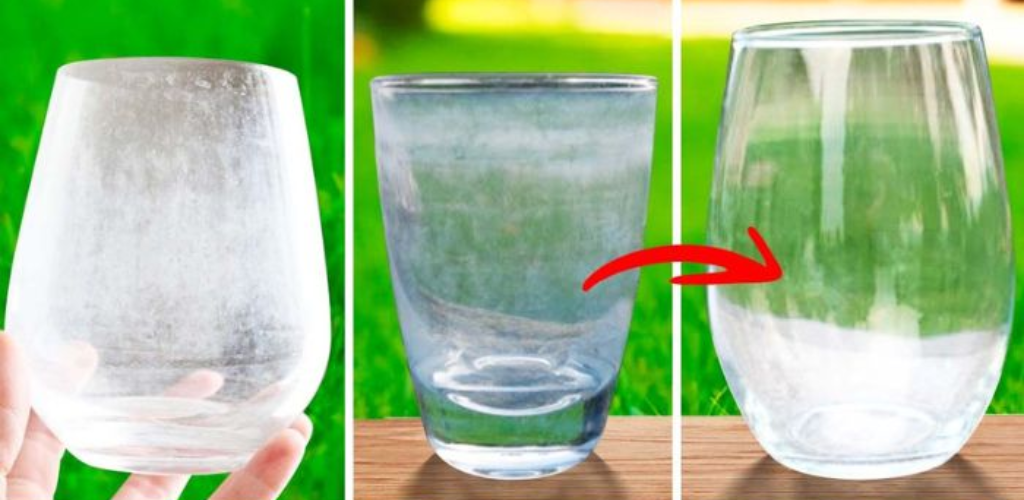The trick that works to get your glasses whitened again: they will look like new
Limestone traces on a glass
pinterest-logo
Limestone traces on a glass – Source: spm
How do you remove limescale from cups and glasses?
Before even considering removing lime deposits encrusted on your lenses, it would be good to determine where these stains come from. As a rule, they result from the calcination of alkaline and mineral substances present in the water. The absence of rinsing liquid or salt in the dishwasher, the overuse of detergent during washing or even the hardness of the water (high lime concentration) often cause these unsightly white spots to appear on glasses.
At first glance, descaling glasses may seem daunting, but you’ll be surprised to find that there are several simple methods to make the job easier. Just pay attention to the following tips.
Here’s how to clean glasses in a simple, quick and effective way:
First thing to do: completely empty your dishwasher and run a short wash program with baking soda and half a lemon. Once the quick program is finished, check that there are no traces of baking soda left and that the dishwasher filters are perfectly clean. Then put the glasses in the machine, add a little more baking soda again and run a quick wash again.
NB: baking soda is known to fight stubborn limescale stains and descale various items. Not to mention that it has degreasing and whitening properties.
If the problem persists and you still can’t completely remove limescale from your glasses, you can try this very reliable remedy. Soak a cloth in lemon and white vinegar to clean your glasses after machine washing. This solution will bring a beautiful shine: your glasses will be as clear as you wish!
Note: vinegar has excellent cleaning and stain-removing properties that will help quickly remove white stains that stick to glass containers.
Another home remedy: to eradicate stubborn limescale inside your glasses, fill a large container with very hot water. Pour white vinegar into it and immerse the glasses in it, letting them soak for about 15 minutes. After this time, you will notice that the limescale residue has completely disappeared. However, a strong vinegar smell is still present in your glasses. Rest assured, you can easily neutralize it by cleaning your containers again with hot water combined with lemon. Your glasses will be scented with a delicate aroma of fresh citrus.
Finally, it is also possible to immerse stained dishes in a mixture of hot water and white vinegar (in equal parts). Leave it to act for a few minutes. Then wash the glasses with a mild soap. After this cleaning, carefully dry each part with a microfibre cloth and make sure you have successfully removed all traces of limescale.
Putting stained glass in the dishwasher
pinterest-logo
Putting stained glass in the dishwasher – Source: spm
How to avoid limescale build-up on your glassware?
Here are 8 tips to follow to avoid limescale build-up on your glassware:
- Make sure the dishwasher tanks are always filled with a sufficient amount of detergent.
- Check regularly that the dishwasher filters are in good condition. If this is not the case, they need to be changed!
- Use specific anti-limescale products to clean the filters and ensure that the appliance works properly.
- Use half a lemon in each wash to reduce limescale and prevent the build-up of bad odours.
- Correctly use the compartments recommended by the dishwasher manufacturer to place cups and glasses in the appliance.
- Avoid placing glasses too close together. Too much proximity often causes scratches, broken glass or even premature wear.
- Always take precautions: before starting a program, check that glasses and cups are stable and well placed. If they move during the process, they can be scratched or broken.
- Finally, as for the dishwasher, always opt for delicate products that will take good care of your glass containers. And always take into account the hardness of the water in your area: the more limestone-laden it is, the greater the risk of damaging the glass
😊 only educated members will say thank you 😊 The rest in the first comment
